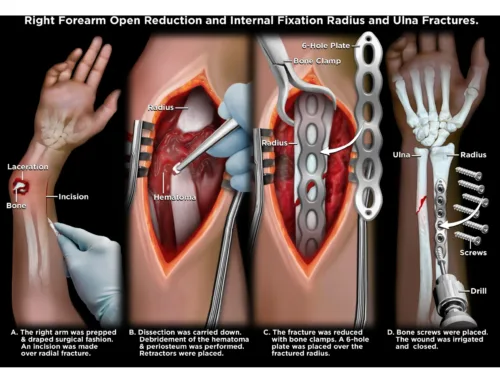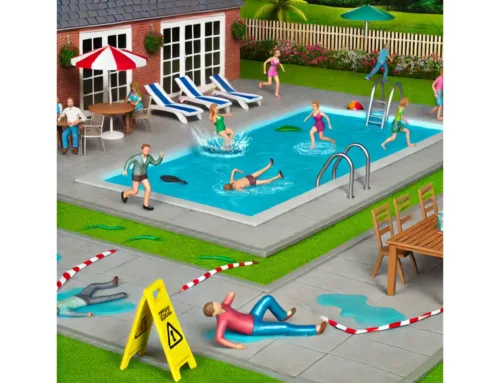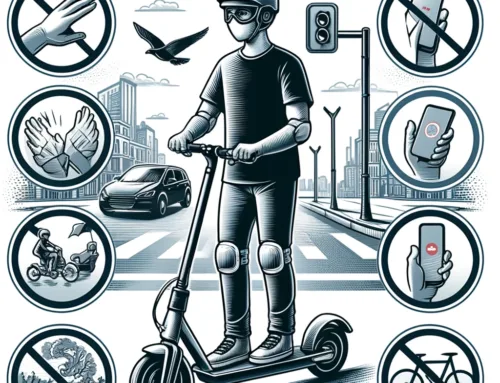As the weather gets warmer and summer vacation draws closer, kids and families are starting to look forward to spending more time outdoors, having fun and keeping cool. For those families fortunate enough to have (or know someone who has) a swimming pool, the anticipation of summer becomes even more exciting – but it can also bring unexpected dangers. There are more than 10 million swimming pools in the US, and drowning is the fifth most common cause of death by injury among Americans, and the second most common cause of injury death for children of ages 1-14. The danger is so great that drowning claims more young children (ages 1-4) than any other cause of death other than birth defects.
It only takes a few moments’ inattention for a fun day by the poolside to take a tragic turn, but there are a few simple steps you can take to make owning or visiting a swimming pool a safer experience for everyone involved.
 Poolside Safety Tips For Everyone
Poolside Safety Tips For Everyone
- Learn to Recognize Distress. In movies and television shows, drowning is a loud and visually obvious process, with noisy splashing and cries for help – but that’s only so viewers can understand what’s happening onscreen. In real life, drowning can be much quicker and quieter, and the drowning victim is often vertical in the water, making them harder to notice but easier to sink beneath the surface. Learning to recognize signs of genuine distress can make a timely intervention more possible.
- Don’t Crowd-Source Supervision. When a task is “everyone’s responsibility,” it’s actually no one’s responsibility, and that includes watching groups of children in the water. It’s better to take turns being responsible for supervising the group swim, so the person on duty can put away their phone and other distractions and give the task their full attention, until someone else takes over.
- No Blue Swimwear. It may be the most popular favorite color and on-theme for poolside activities, but blue bathing suits can make it more difficult to spot a child against the background of the swimming pool. Parents are advised to choose another color that provides better contrast.
- Don’t Rely on Water Wings. Like other floating pool gear such as rafts and foam noodles, water wings are toys, not safety devices. They should not be relied on by a child who cannot swim on their own, as they can easily slip off the child’s arms. Children who cannot swim unassisted should instead wear a life jacket.
- Step One: Floating. Learning to swim is an important safety skill, but it’s a skill that takes time to acquire. The first thing a child should be taught when being introduced to water is how to float on their back. In a dangerous situation, having this simple skill to fall back on could mean the difference between life and death for a child in the water.
Pool Ownership Safety Measures
- Good Fences Make Safer Pools. In the State of New Jersey, it is required by law to have a fence, wall, or barrier of at least 48” (four feet) in height that fully surrounds a swimming pool, whether in-ground or above-ground. This fence should not be readily climbable or have gaps or spaces large enough for a small child to find their way through. Neighborhood children are often curious, inventive, and determined when it comes to getting into places they shouldn’t be, and the law recognizes the responsibility of adults to take reasonable steps to keep them safe.
- Tidy Up and Put Away. Whenever possible, keep a swimming pool covered when not in use. Any pool toys should be cleared away from the area surrounding the pool and stored when not needed; this both helps reduce the temptation for children to try to get at the pool and its toys unsupervised, and also makes it easier to see with a glance if anything unexpected is happening in the vicinity of the swimming pool.
- Prioritize Early Swimming Lessons. If your family has a backyard pool, your children should start swim lessons as soon as they are mobile enough to walk or crawl themselves toward the pool. Learning even basic swimming skills gives kids an added level of protection in the event they find their way into the pool unexpectedly – and can give parents or guardians a little bit of precious extra time to intervene.
Swimming is an excellent way to beat the summer heat, a good form of exercise, and a great source of fun for family and friends. Backyard pools are not without their dangers – and the stakes can be tragically high – but there are simple steps that pool owners and visitors alike can take to reduce the risk of an accident and enjoy a relaxing summer swim with their families.
Contact MyNJInjuryLawyer Howard P. Lesnik
If you or a loved one suffered an injury in an accident in NJ, you should contact an attorney familiar with handling these claims. An experienced NJ Injury Lawyer will know how to obtain medical records, videos, photographs, experts, locate witnesses and contact the insurance company so you can make a claim for your injuries.
My NJ Injury Lawyer Howard P. Lesnik, Esq. offers complimentary strategy sessions to address any issue or questions you may have for your injury claim in NJ.
Please contact NJ Injury Lawyer Howard Lesnik, Esq., immediately if you were involved in an accident. I personally handle NJ personal injury cases on a regular basis. Please contact me now by email, by phoning 908.264.7701, or by completing the form to the right to schedule your complimentary 30-minute strategy session.







